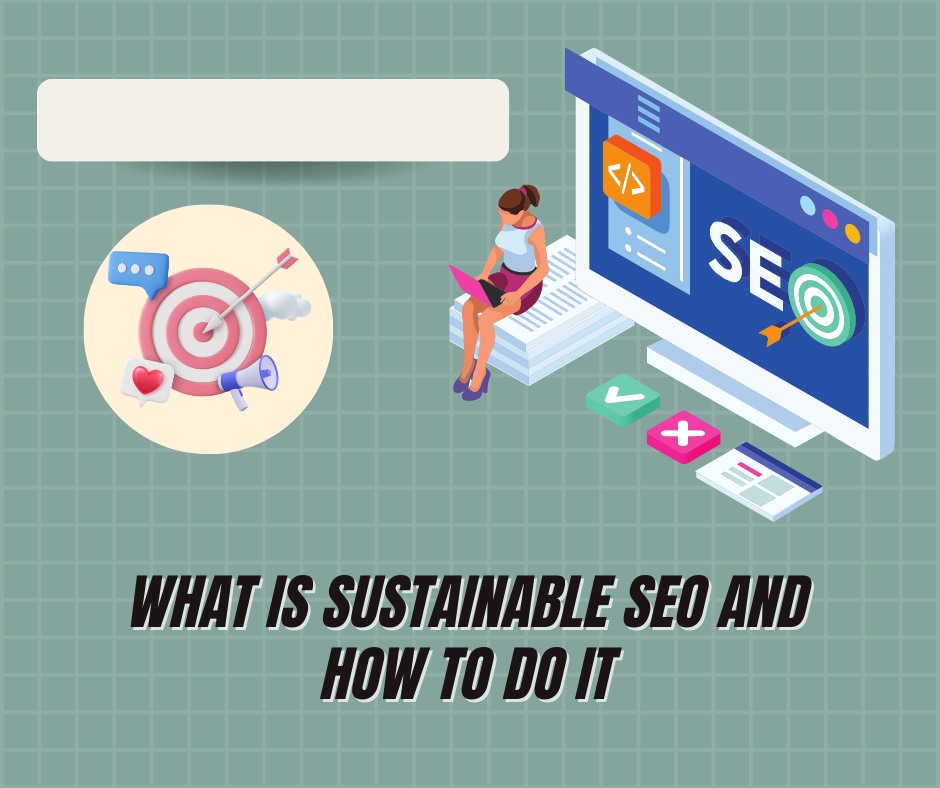Sustainable SEO means focusing on activities and strategies to create long-term, organic success. Through these strategies, you can outrank competitors in search engines and ensure your website stays ranked in the long run. Among them are optimizing organic content for keywords, building quality backlinks, using technical optimization, and ensuring website speed is up to scratch. Sustainable SEO also involves leveraging Artificial Intelligence (AI) to accelerate digital marketing.
Sustainable SEO Begins with Research
While SEO is vital to any inbound marketing plan, it alone does not drive traffic to your website. You must coordinate SEO with other content strategies to make an impact. To achieve a coordinated effort, you need to begin research.
Searching for SEO is more than just looking for keywords with high conversion rates. It is learning more about your company, what it offers, and who your audience is. So, before looking for your first of many keywords, you must dig on your website to determine who you are.
There are four main aspects to sustainable SEO insights. These are:
- Establishing a baseline
- Identifying topics, competition benchmarks, and demand
- Create new optimized content
- Track, measure, and refine
We will look at each of these in greater detail.
Establish a Baseline for Sustainable SEO
Sustainable SEO begins with understanding how your website is currently performing. You want to see your organic traffic before changes are made and implemented.
Start with a content and technical audit. These will help you identify and prioritize opportunities for new content and visitor growth. It also provides a baseline for website activity that will help you accurately measure the impact of your new marketing strategy.
Content Audit
During your content audit, you can assess current content for topics, structure, and substance that can work with a larger marketing strategy. You can also begin compiling a comprehensive list of keywords that currently work on your website.
With this information, you can see where to include important information and where there may be a hole in your keyword list. You can also see what pages and lower-ranking keywords you can utilize in upcoming campaigns.
Technical Audit
Technical audits alert you to issues your site has. Search engines detect technical signals on your site. These signals help the search engine contextualize content on your website. For example, search engines use technical information to rank the site for visitors.
There are several items that technical audits consider. On-page elements include tags like H1, H2, or images. Site elements that contribute to search engine ranking include things like mobile-friendly and page speed.
Identifying Topics, Benchmarking Competitors, and Gauge Demand
With the audits complete, it is time to identify topics that will help to boost your SEO opportunities. To create a sustainable SEO strategy, you should focus on new content for relevant audiences. Updating older content can help some, but you must focus on moving forward.
Before creating new content, you should understand what your potential customers seek. Then, look at keywords and phrases to determine what to target with your content.
You should also look at your competition. What type of content your competition offers can give you ideas for your website. You don’t want to copy them, but you can look at what they have and offer your take on some of their topics.
Create Sustainable SEO Content and Optimizing It
With all your research under your belt, it’s time to create new content for your website. First, focus on your baseline and determine what you must tackle. Then, combine this data with all the information from your topic and competitor research and create new, stunning content.
The easiest way to optimize new content is to do it as you go. Search engines look at more than just keywords; there are several pieces to the puzzle you need to try to put into place. Then, use the right tools to create content that will form content that search engines will love and visitors can use.
Measuring and Tweaking
Even if your site has new content, you must continue to monitor it. It is the only way to be certain that your changes are working. That is to monitor and measure your strategy.
As with the beginning of the sustainable SEO cycle, you must pull data to see what visitors view your site. You should use your baseline to determine what changes have occurred and how your site has improved.
Active measurements are the only way to make your SEO strategy sustainable.
Achieving sustainable SEO requires a consistent and structured approach. Regular evaluation of existing strategies is essential for tracking progress, as well as finding opportunities for improvement. To this end, keyword research tools like Semrush and AI-powered content tools can be employed to enhance an SEO strategy and ensure its success over the long term.
Effective SEO is crucial to the success of any website, and taking a sustainable approach is vital. This means choosing content that will be meaningful and useful to your audience. In addition, taking a long-term view when it comes to SEO can help ensure that your efforts are rewarded over time. Contact us today to learn more about how we can help you achieve your SEO goals.
